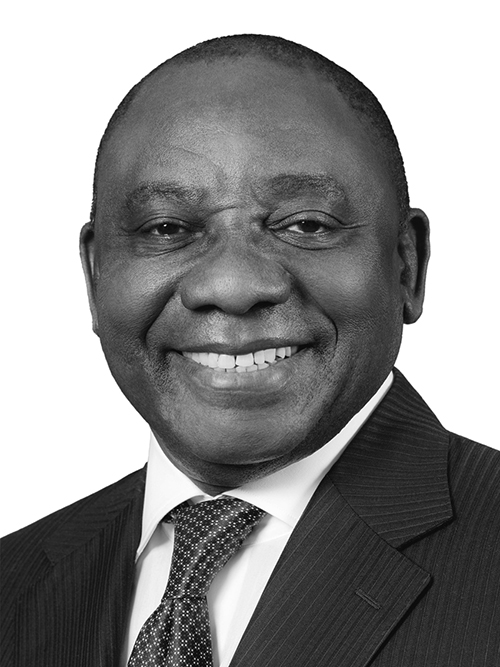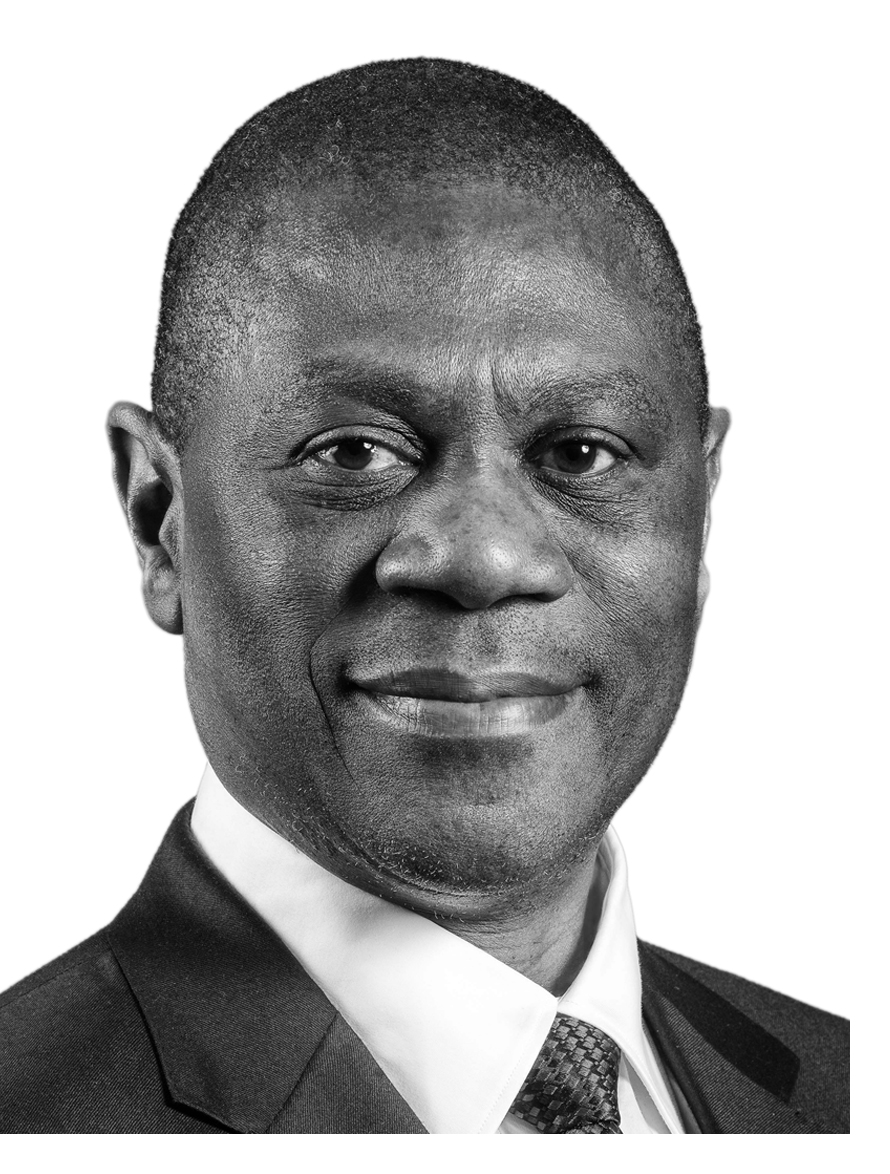Programme Director;
Former President of South Africa and Patron of the Thabo Mbeki Foundation, His Excellency Thabo Mbeki;
Former Prime Minister of Australia, His Excellency Tony Abbott;
Former Prime Minister of Mali, His Excellency Moussa Mara;
Former Minister of Commerce and Industry, India, Honourable Anand Sharma;
Chairman, Observer Research Foundation, India, Mr Sunjoy Joshi;
President, Observer Research Foundation, India, Mr Samir Saran;
Chief Executive Officer, Thabo Mbeki Foundation, South Africa, Mr Max Boqwana;
Distinguished Guests,
I am delighted to be invited to participate in this second Cape Town Conversation.
The conversation takes place at a time of tectonic shifts in global politics. The world is facing a poly-crisis, characterised by high levels of poverty, inequality, economic stagnation, and climate change, among other things.
Over the past three days, we are aware that delegates here have engaged in identifying responses to the emerging challenges, including assessing progress on the outcomes of the first Cape Town Conversation.
We regard this gathering as a critical and important platform in which you have taken it upon yourself to re-imagine the world by having honest reflections about where we are globally and, most importantly, how we want to chart the path ahead.
Equally, in our country, over the past thirty years since the dawn of democracy, we have been hard at work building a better life for all and contributing to a better Africa and a Better World.
We have taken it upon ourselves that our development as a country is intricately linked to the development and growth of our continent and, indeed, the world.
In this context, we have been working on the continent for peace, stability, and security to silence the guns. Equally, we take a non-aligned stance in conflict and prioritise social justice, peace, and development across the world.
Similarly, we have always been critical of the reforms of the United Nations and all its organs because we want equal opportunities for the rest of the continent.
We have also demonstrated our appreciation and commitment to peace by taking Israel to the ICJ because of the crimes committed against the people of Palestine particularly in Gaza. As President Mandela said, ‘we know too well that our freedom is incomplete without the Freedom of the Palestinians.’
It is for this reason that we stand in solidarity with the people of Cuba, Western Sahara, Sudan, South Sudan and many parts of the world where there is conflict, wars and insecurity. This we do because of solidarity and our commitment to unity.
Compatriots and fellow delegates, we must resolve conflicts in Africa. In this regard, I would like to thank President Mbeki for his continued efforts for peace and security on the continent.
Equally, we must find lasting peace across the world, since access to key resources is a big challenge, affecting our economies and development.
As countries of the global South, we must, therefore, firmly ground our multilateral cooperation in the synergy between peace and development.
Compatriots and fellow delegates, South Africa will assume the G20 Presidency on 1 December 2024. The overarching theme of South Africa’s Presidency will be "Solidarity, Equality, and Sustainable Development."
South Africa intends to place Africa’s development at the top of the agenda. We shall use the opportunity presented by this G20 presidency to advance the priorities of the AU’s Agenda 2063: The Africa We Want, in close collaboration with the African Union.
Throughout our G20 tenure, we will guarantee that the G20 remains attuned to the requirements of the developing economies in Africa and the broader Global South. South Africa firmly believes that the G20, with the United Nations (UN) at its centre, is vital in accelerating the implementation of the Sustainable Development Goals (SDGs).
The global stagnation in advancing sustainable development is concerning and highlights the need for international cooperation in addressing these challenges, including those related to illicit financial flows. This would ensure that low—and middle-income countries have equitable access to sustainable development.
Compatriots and Fellow Delegates,
You will agree with me that there needs to be an expansion in the accessibility of affordable, reliable, and sustainable finance for low—and middle-income countries.
Our countries also still need to make strides in areas such as modern energy, capacity building, access to affordable and the latest technology in the public domain, mutually beneficial technology cooperation, and financing mitigation actions in the energy sector.
Following some of your discussions, I am pleased that there is some consensus that we should strengthen global collaboration through multilateralism to achieve our goals. South Africa believes that Multilateral Development Banks (MDB) and the International Monetary Fund (IMF), need to be reformed to meet the needs of growing economies for sustainable development and climate resilience.
Presently, multilateral support is out of reach for most of the world’s population due to risk-averse lending policies that impose heavy costs and conditions. South Africa is acting as a bridge between the global South and the international community, advocating for inclusive policies that represent the interests of low—and middle-income countries.
As a member of international organisations like the United Nations, the African Union, and BRICS, South Africa actively participates in diplomatic efforts to address issues affecting developing countries.
South Africa advocates for policies encouraging economic development, poverty eradication, social fairness, and sustainability in developing countries.
These include fair trade agreements, debt relief, access to critical services such as healthcare and education, and combating climate change. Through advocating for these interests on a global scale, South Africa ensures that their voices are heard, and their demands are met in international talks.
This role as a mediator and advocate for the Global South assists in building a more equal and inclusive international community.
Compatriots and Fellow Delegates,
South Africa also places importance on the issue of critical minerals and will seek to highlight this during its G20 Presidency. The country aims to address issues of beneficiation, domestic resource mobilisation, critical mineral strategy, interdependent supply chains, and natural capital.
These minerals are crucial for a just transition and a green economy, and deliberations on the type of investment required to address these issues remains relevant.
During the Foundation’s Africa Day Lecture, Prof. Abdoulaye Bathily asked whether, "Africa should remain the provider of raw materials while our population is dying of hunger?"
This question struck me and remained a point I pondered on.
Indeed, we must not continue to be raw material suppliers and allow our fertile lands to be auctioned off by international investors who come to exploit our raw minerals and export them to other countries. At the same time, our people remain jobless and continue to languish in poverty.
Compatriots and Fellow delegates;
Over the past three days, some discussions have centred on transforming global governance, creating new growth pathways, and developing actionable solutions.
In this regard, we are dedicating ourselves to offering a distinctive opportunity to elevate the requirements, aspirations, and ambitions of countries in the Global South.
South Africa intends to build on the success of the Indonesian, Indian, and Brazilian G20 Presidency and use its Presidency to advance global reform agendas, particularly in transforming global financial architecture and reforming the International Monetary Fund/World Bank/Multilateral Development Banks.
We are also considering monitoring the G20's past commitments and the possibility of a G20 review, given that the full cycle of G20 members ends with South Africa.
South Africa will thus persist in promoting the peaceful resolution of global conflicts. Our foreign policy is guided by principles of solidarity, peace, equality, human rights, and sustainable development for the collective benefit. We will persist in fulfilling this commitment without undue pressure and in line with South Africa's national sovereign interests.
We welcome Lebanon's cease-fire and hope for an end to the genocide in Gaza. We hope that the ceasefire deal between Israel and Hezbollah will help bring stability to the region and end the cycle of violence along the border.
What we want to see now, is the urgent need to improve humanitarian conditions!
Let the guns be silenced in the continent and around the world and let unity and peace reign!
Ladies and Gentlemen,
Amidst all the challenges, there are many opportunities. We believe the Global South remains a ray of hope. It encapsulates regions where economic growth has remained steady, populations are receptive to new ideas and transformative policies, and the political will for change remains strong.
We can all agree that countries in the global south have immense potential for growth and development, which exists in our community. We can capitalise on new opportunities, whether in business, education, or innovation, to uplift and empower one another.
Africa has been gaining more attention from the international community because of its dynamic economic progress.
As developing countries, we should also leverage the digital economy to transform traditional economic processes, as this is the direction the global world is headed towards.
Therefore, we must ensure that entrepreneurs, innovators, and workers harness digital technologies to meet their needs.
However, we must remain cognisant that the Global South is industrialising and digitalising simultaneously.
It is important for us to maintain balance and be inclusive in our programs and policies, so we leave no one behind.
We must capitalise on the opportunities presented by the African Continental Free Trade Area (AfCFTA), which establishes a unified continental market for products and services in Africa. It seeks to expedite intra-African trade and has the potential to enhance our economies and improve the quality of life of the people throughout the continent.
This will result in the diversification of exports, the acceleration of growth, and an increase in investment and employment possibilities for South Africans and the broader continent.
For success, African countries must prioritise the development of infrastructure, particularly for rail and road transport, as it is the most favoured mode for transporting products, services, and passengers. We must also invest heavily in our ports to ensure efficient freight logistics.
Compatriots and Fellow delegates;
Another obstacle to our success is the effects of climate change, which impact the environment and livelihoods and result in socio-economic distress.
To prevent such occurrences, we must remain dedicated to fulfilling the obligations outlined in the Nationally Determined Contributions (NDC) under the Paris Agreement.
To effectively respond to these disasters, we must adjust macroeconomic policies and create policy flexibility to address more frequent weather shocks. We must also enhance infrastructure to enhance economic resilience.
As we work toward net zero, wealthier countries must afford us time to adjust, financial support, and policy assistance when required.
Compatriots and Fellow Delegates,
As we part ways for our respective destinations, our focus should be on implementing what has been discussed. Indeed, the best way to measure a conference's success is to implement its resolutions.
Our countries' development lies on our shoulders.
We must agree to do all we can to ensure a better future for the next generations. As President Nelson Mandela once said ‘It always seem impossible, until it is done’! The speed of execution must become our mantra!
I thank you.









